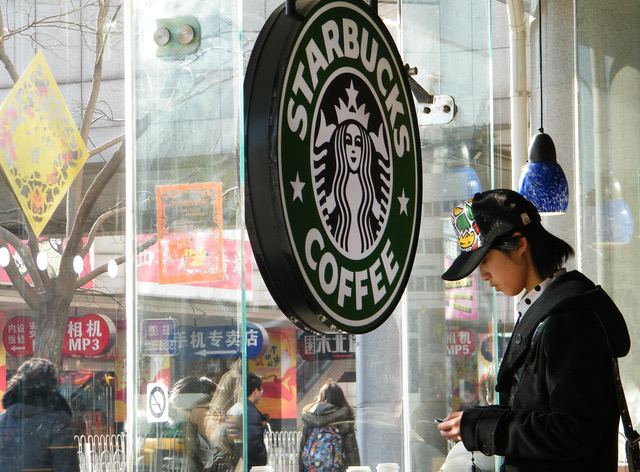NLPC highlights #humanrights #hypocrisy at @Starbucks annual meeting #Starbucks #investors https://t.co/9AhYosceRI pic.twitter.com/ejesppX8zg
— NLPC (@NLPC) March 13, 2024
On Wednesday, National Legal and Policy Center presented a “Congruency Report on Human Rights” proposal at Starbucks Corporation‘s annual shareholder meeting, which would require the company to explain the misalignment of its stated policies on human rights with its company actions, especially under oppressive governments’ such as China‘s.
Starbucks’s board of directors opposed our proposal, as explained on pages 100-101 of the company’s proxy statement. NLPC’s response to the Starbucks board’s opposition statement was filed with the Securities and Exchange Commission in early February.
Speaking at the meeting as sponsor of the resolution was Paul Chesser, director of NLPC’s Corporate Integrity Project. A transcript of his three-minute remarks follows:
Good morning.
In August, the Wall Street Journal reported that Western companies are losing their enthusiasm about doing business with China, because it is increasingly uninsurable, due to political risk.
Of the 60 or so insurers that offer political-risk insurance, only four or five still offer it for China.
And less than six months ago, the Journal reported that U.S. companies are painting the bleakest picture in decades over doing business in China, thanks to a declining environment for operations.
But while most other American corporations are shying away from dealing with the two-faced, human rights abusers in the communist government, Starbucks sees … an opportunity?
Somehow this iconic coffee brand is aggressively expanding in China, spending $220 million dollars on a manufacturing and distribution facility.
Meanwhile other companies’ executives are afraid to go there, for fear of not being allowed to leave, due to exit bans.
So how does Starbucks get away with amazing growth, in a place where most other U.S. companies are increasingly unsafe and uneasy?
Maybe it’s because Starbucks has made “friends in high places” of the Chinese Communist Party, as one expert stated.
This expert said Starbucks is “very politically savvy when it comes to the Chinese marketplace,” and that “Most of their real estate partners are either high-ranking party officials, or real estate entities, that are in some way tied to the Chinese Communist Party, and some of the leaders.”
Well, that would explain a lot, wouldn’t it!
So how and where does Starbucks’ top brass cozy up to the genocidal and dictatorial communist government, where so many other American business executives fear to tread??
While Mr. Narasimhan and the Board of Directors are under assault by Big Labor forces who just scored huge wins against the U.S. automotive industry, are Starbucks’ executives looking for an easier path by dealing with the dictators in China instead?
Starbucks has responded to our proposal by claiming they conducted an enterprise-wide “Human Rights Impact Assessment,” in accordance with the United Nations Guiding Principles on Human Rights.
But this assessment was led by an independent consultancy that looks more like a PR firm, than human rights advocates.
The assessment comes across more like a defense against the labor union attacks against Starbucks, rather than show any concern about human rights under communism, especially under China.
Last I looked, Big Labor unions weren’t throwing people in gulags for their dissent, like Starbucks’ CCP business partners do.
No, Starbucks’ so-called human rights assessment has absolutely nothing to say about ANY concerns with doing business in China, despite the company’s ambitious growth plans over there.
A human rights assessment that fails to say anything about China can be called only one thing: A joke.
Please vote FOR proposal Number 6.
Read NLPC’s shareholder proposal for Starbucks here.
Read NLPC’s report filed at the SEC in support of its proposal here.









